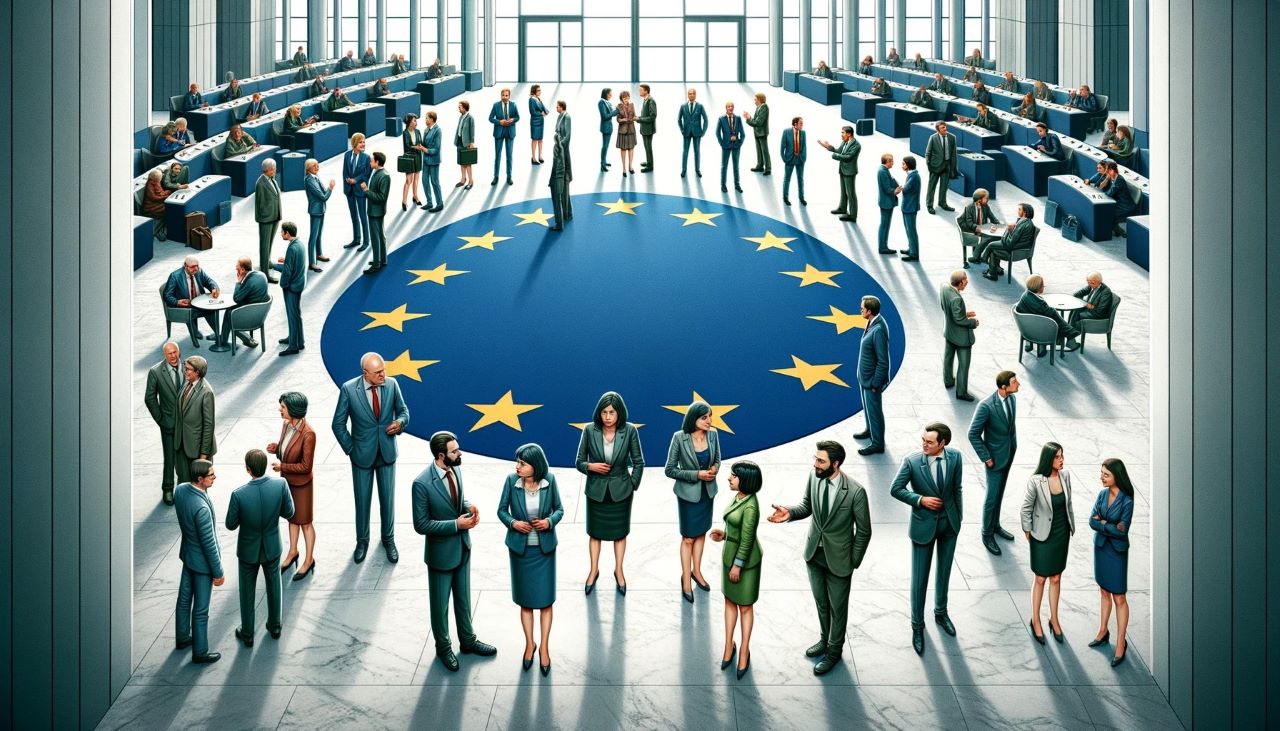- Lobbyists increasingly sign up to EU transparency register
- Spontaneous meetings and most EU staff still exempt from transparency rules
- Auditors warn about risk of NGOs’ funding sources remaining opaque
Lobbying EU lawmakers can still slip under the radar, according to a report by the European Court of Auditors. The EU transparency register, which provides information on who lobbies the Commission, Parliament, and Council, has positive features and informs citizens about the potential influence of lobbyists. However, it suffers from weaknesses and information gaps that make lobbying activities in the three largest EU institutions less transparent. Furthermore, lobbyists can bypass the register for a range of interactions where they can still influence EU lawmakers.
Lobbying is an essential democratic tool that allows organisations and individuals to provide input for policy and decision-making. However, without transparency mechanisms, it can result in undue influence, unfair competition, and even corruption. To deter unethical behaviour by staff, the EU institutions apply their own ethical frameworks. The Commission, Parliament and Council also signed up to the transparency register, a central entry point for lobbyists wishing to influence the development of EU policies and decision-making. In 2021, these institutions agreed on the conditionality principle, whereby registration is a necessary precondition for lobbyists being able to carry out certain activities.
“The EU transparency register must be bolstered so that it doesn’t turn into a paper tiger,” said Jorg Kristijan Petrovič, the ECA member who led the audit. “Although it provides useful information on lobbying, it is not a silver bullet. A range of lobbying interactions with EU lawmakers can be hidden from the public eye, thus reducing transparency and affecting public trust.”
The 2021 interinstitutional agreement is broadly in line with international principles for transparency and integrity in lobbying. However, it does not set out minimum requirements for implementation. Instead, it leaves scope for the institutions to apply it differently, for example as regards which lobbying activities require registration, or how lobbyists can interact with the institutions’ members and staff. The fact is that lobbyists have to register only for certain meetings and activities (e.g. attending hearings or expert groups). For example, a non-governmental organisation identified in “Qatargate” was not registered, but had co-hosted a conference at the Parliament in June 2022. At the same time, the enforcement measures which the institutions can take in order to ensure that lobbyists comply with registration and information requirements fall short. Between 2019 and 2022, an average of almost 1 000 lobbyists were removed each year for administrative reasons. By contrast, only six were removed following investigations.
The auditors are critical of the fact that lobbyists must be registered only to meet the highest-ranking staff, and that only pre-scheduled meetings are reported. A formal record does not need to be kept of spontaneous meetings, unscheduled phone calls, and email exchanges, and lobbyists are not required to register to meet staff below director-general level, i.e. most staff. Although the institutions are taking steps to increase transparency and encourage registration, thus leading to more information on meetings and activities with registered lobbyists being published, such information is not published on a systematic basis. In addition, the checks on the data recorded by lobbyists should be improved further, particularly as there is a risk that third-party-funded NGOs may not disclose their funding sources by stating only that they represent their own interests or the collective interest of their members, as in the case of a third of registered NGOs. Lastly, the register’s website has significant drawbacks when it comes to providing sufficient information on key aspects of lobbying activities to allow for public scrutiny, and should be more user-friendly.
Background information
The number of lobbyists listed in the EU transparency register has grown significantly since it was created, from around 5 500 in 2012 to roughly 12 500 in 2024. The register is voluntary and based on the interinstitutional agreement, which is not an enforceable legislative act. As such, it cannot give rise to penalties, unlike some lobbying arrangements in EU countries that also cover a broader range of staff. In December 2022, allegations emerged that Qatar had unlawfully influenced – or even bribed – MEPs to achieve foreign-policy goals (“Qatargate”). The Parliament has since taken several decisions on how it implements the register. The audit started before this, focusing on the 2019-2022 period, but took these decisions into account. The European Ombudsman recently found maladministration by the register’s secretariat – common to all three institutions – for failing to carry out meaningful investigations.
Special report 05/2024, “EU Transparency Register: provides useful but limited information on lobbying activities”, is available on the ECA website. The auditors’ recommendations are useful for the 2025 review of the interinstitutional agreement. In 2019, the ECA issued a report on ethical frameworks in the EU institutions.

